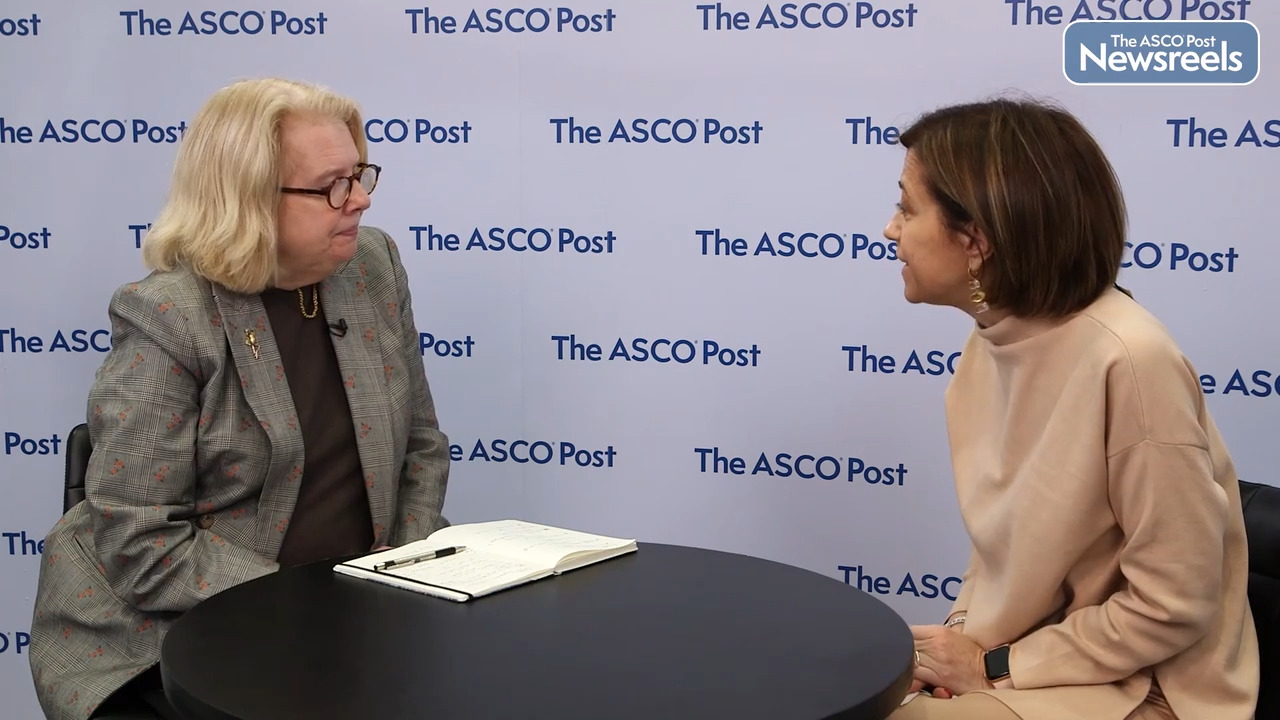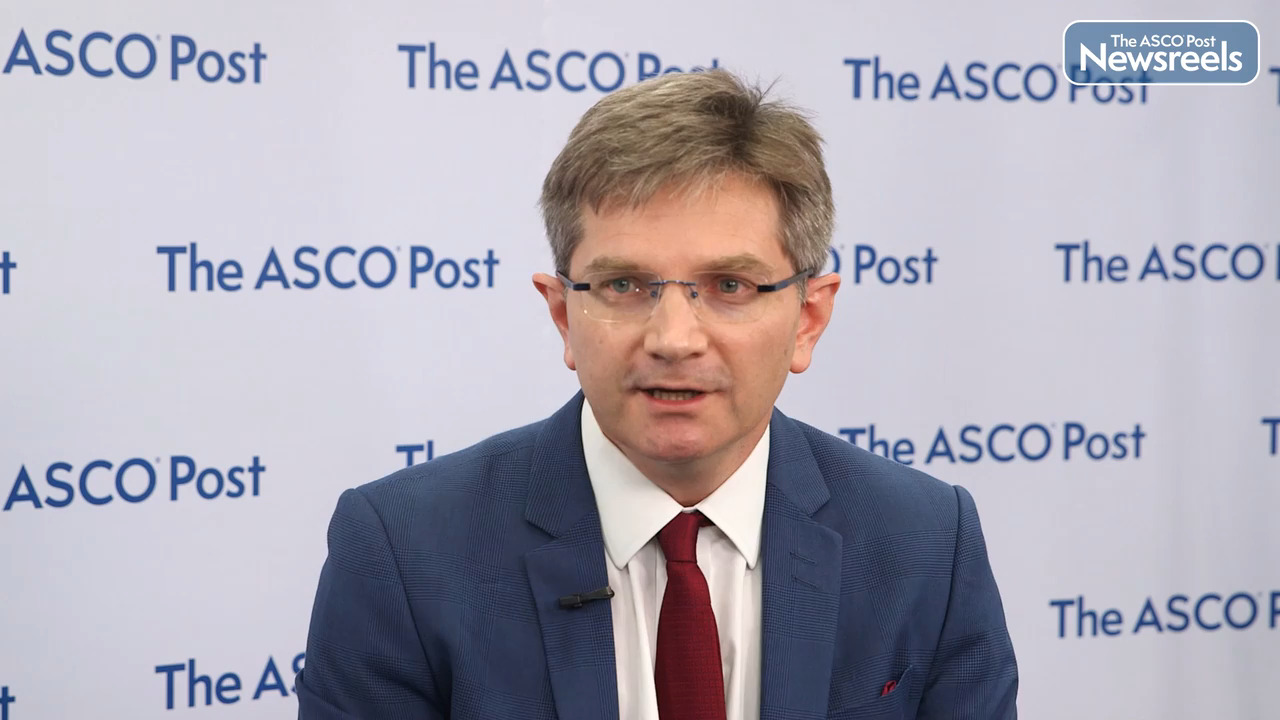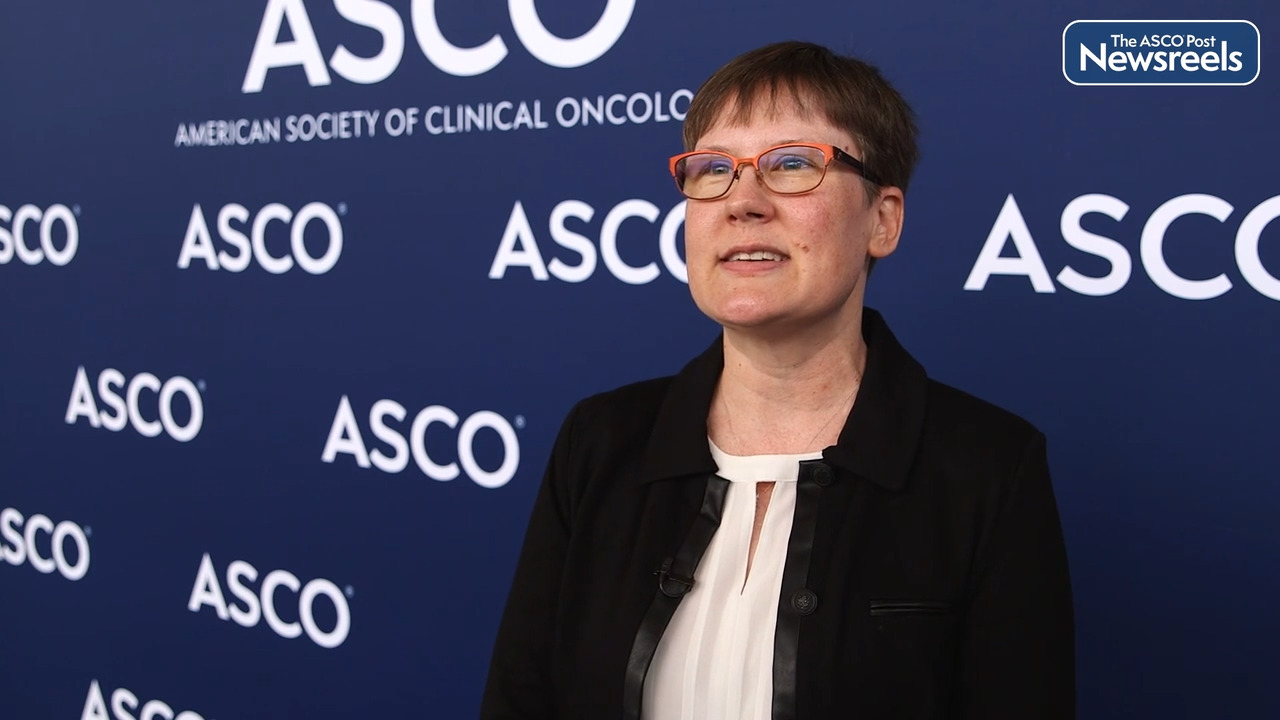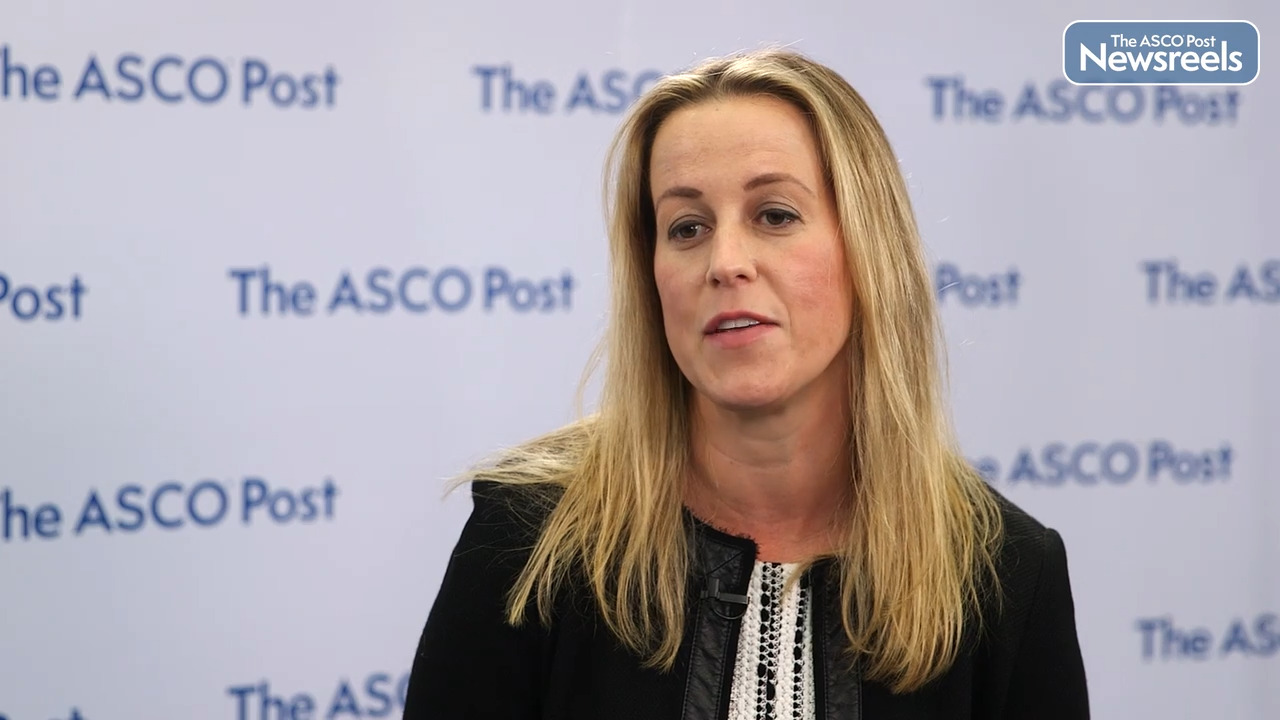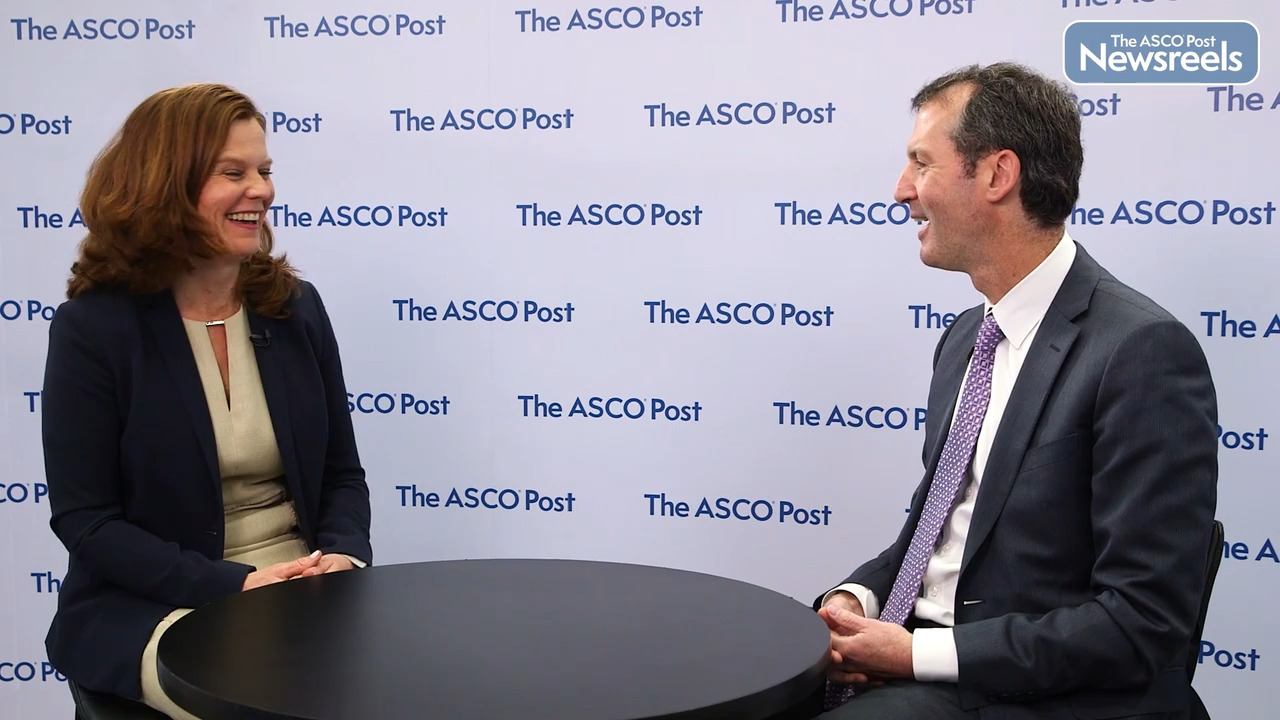Transcript
Disclaimer: This video transcript has not been proofread or edited and may contain errors.
Lisa A. Carey:
Shanu, it is such a pleasure to have a chance to talk to you here at ASCO Post about the DESTINY-04 presentation that you got a standing ovation for at ASCO this year comparing trastuzumab deruxtecan to chemotherapy of physician's choice in HER2-low breast cancer. The results are remarkable. A five to six month improvement in PFS and OS, a tripling of response rate. What's key to understanding what people should be doing on Monday morning in their clinic is who are the treated population and what does it mean in terms of who should be getting considered for this and where are we going with it? So could you talk a little bit about the population and the inclusion criteria because this HER2-low is new.
Shanu Modi:
Yes. Yeah. I mean, it was really exciting and a privilege to present those really exciting data. The trial really focused on this population that we call HER2-low breast cancer, and we really define HER2-low using immunohistochemistry tests on tumors, and it's tumors that have HER2 1+ or 2+ without gene amplification. Those are the tumors that we are now defining as HER2-low-
Lisa A. Carey:
Which traditionally are considered HER2 negative-
Shanu Modi:
Correct.
Lisa A. Carey:
Which is a really crucial.
Shanu Modi:
Yeah. These tumors have traditionally been put under the umbrella of HER2 negative, but we've always known that there are cancers under this umbrella where there is some lower level of HER2 expression, so we've sort of captured that population in this trial. These were patients who have had one or two lines of prior chemotherapy and this included patients who had hormone positive and also hormone receptor-negative breast cancer as well.
Shanu Modi:
For the hormone receptor-positive patient, it was also important that those patients had had endocrine lines of therapy and that their physicians actually felt their cancer was now endocrine refractory. So it's a really in some ways of a very specific population of more sort of later stage patients that we are treating in this trial.
Lisa A. Carey:
Most of the patients actually fall in that category of what we would consider using conventional pathology ... That's about to change ... Hormone receptor-positive, clinically HER2 negative, but now HER2-low. A small proportion were what we would consider triple negative.
Shanu Modi:
Right.
Lisa A. Carey:
Talk a little bit about those two groups.
Shanu Modi:
Yeah. I mean, within the HER2-low population, the vast majority of patients are actually hormone receptor-positive. It's almost a ratio of eight to one. There is then of course, the smaller group of hormone receptor-negative patients, and you're right, traditionally we would've called these triple negative breast cancers. So they're included in this population, and so HER2-low in many ways is a really heterogeneous population of breast cancer patients. So it's hard to define a prognosis. I wouldn't say they're their own subtype, but they're a population that has a great target for this exciting drug.
Lisa A. Carey:
Yeah. No doubt about it. It is going to change the way we think about breast cancer in general. Trastuzumab deruxtecan, of course, we're all very familiar with it in the HER2 positive arena. This toxicity was what we expect it to be. It's not an easy drug from the standpoint of ... But compared to chemotherapy, it looks pretty good. Can you talk a little bit about the ILD, which is the thing that everybody worries about the most?
Shanu Modi:
Yeah. I mean, I think you're right. In general, I think because most of us have had familiarity with using this in the HER2 positive arena, the side effect profile was not particularly surprising or different in the HER2-low patients. But it does have this unique lung toxicity we call ILD, and we did see it in this trial. We actually have seen it in all trials of T-DXd. For the majority of patients, thankfully it is a low grade toxicity and it is a reversible toxicity, but because there is a risk and there is a potential for some patients to have a higher grade event, it is something we really have to monitor these patients for and monitor closely. In the DESTINY-04 trial there were three patients who have had fatal events from lung toxicity.
Shanu Modi:
So it is really an important toxicity for oncologists and for patients to be aware of. I think with proactive monitoring, vigilance and early intervention, we can minimize the potential risk of lung toxicity. We've seen that in other trials. DESTINY-03, it was really nice to see the updated safety results at this meeting as well. They continue to show no high grade events. So I feel like that's a bar that is clearly attainable, which is a bar we really want to set for all our studies. I think we've done this in oncology before. We've learned to give therapies with serious toxicities safely. I think we are going to do that with T-DXd and lung toxicity, and I think frankly, we're on that trajectory already.
Lisa A. Carey:
Yeah. I mean, no question. They're all coming somewhere between 10% and 15%. In your trial, you had a pretty aggressive monitoring schedule and surveillance for ILD, which I think is crucial for the effectiveness of this. So in the end of the day we now have what's clearly a transformative drug. It's one that we already believed in, but now in a totally new setting that shows a lot of effectiveness in a heavily pretreated group, both in the triple negative and in the hormone receptor-positives. Where's it going?
Shanu Modi:
Yeah. I mean, it's pretty exciting. I think this was a really groundbreaking trial for our field. So there are a lot of directions. I think in the immediate future, we're really interested in finishing up some of the subanalyses in DESTINY-04. I mean, we've collected important tumor samples. We want to do some correlative studies, see if we can understand mechanisms, the science a little bit better that will inform future studies. We want to report the patient PROs, which we hope to do later this year. Also, really important to understand the patients' perspective on toxicity.
Shanu Modi:
There are actually already a number of really important follow-up studies underway. So DESTINY-06 is again looking at a HER2-low population. This time, less pretreated unlike DESTINY-04, and it includes a small proportion of patients who have what we're calling ultra HER2-low breast cancer, so trying to define the lower boundary of HER2-low. There's a platform study ongoing. I think ultimately all of this is hopefully going to lead to a trial for our early stage patients, for our high risk patients for whom we know our current therapies aren't good enough. We'd love to bring this really active drug to those patients as well.
Lisa A. Carey:
Just fantastic. Congratulations, and thank you so much.
Shanu Modi:
It's my pleasure. Thank you.
